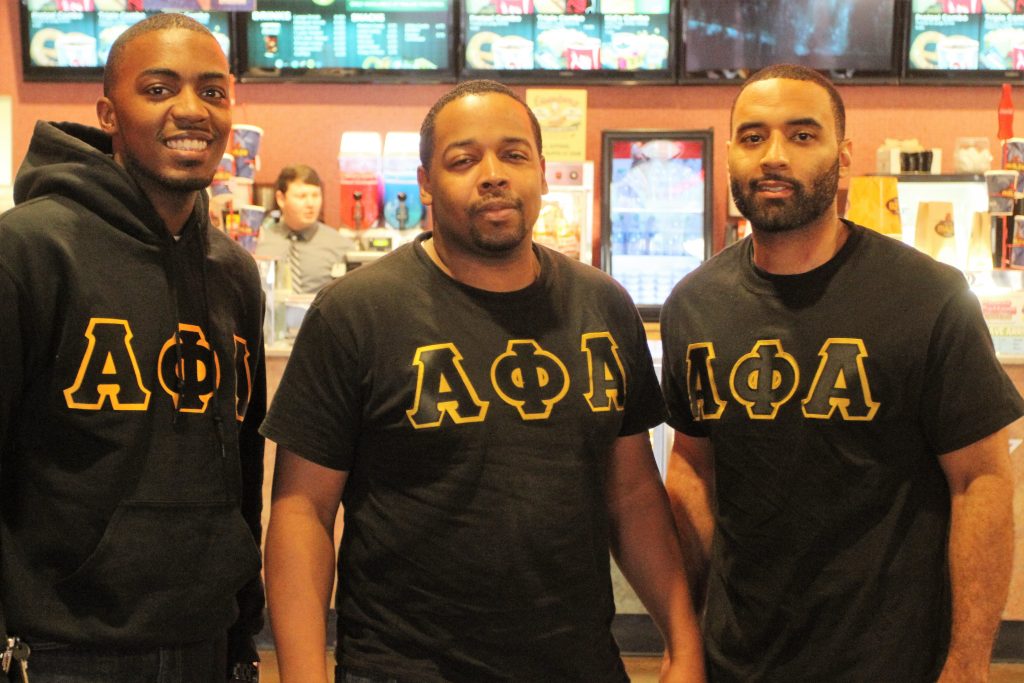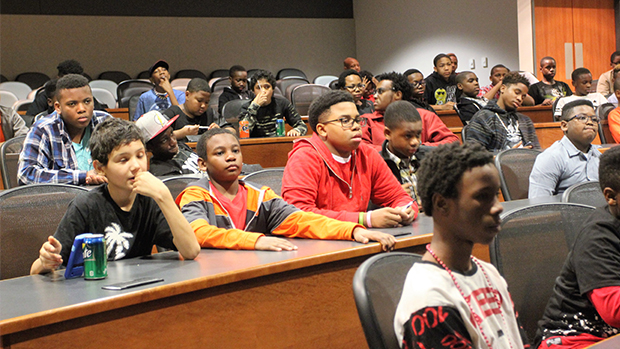
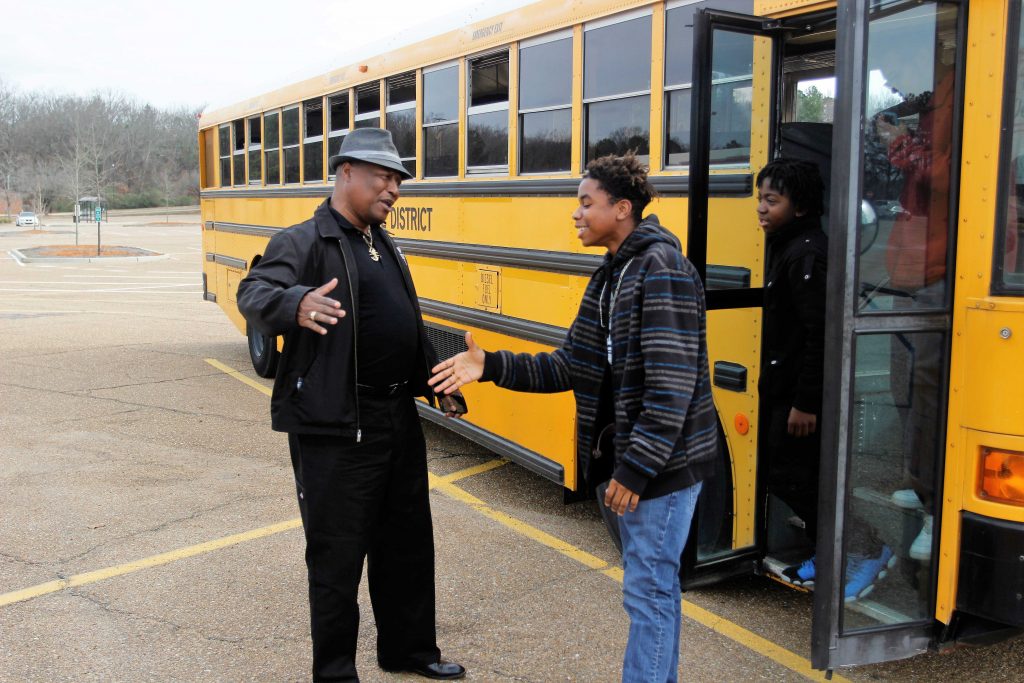
The bus ride bringing 48 young boys from across Northeast Mississippi to Oxford was less than tranquil, but the men from Alpha Phi Alpha Fraternity and the 100 black men of Grenada were capable chaperones. The brothers in community building knew that they had better let the youngsters yelp and holler at least some before they got down to business. The crew disembarked at the Malco, stormed the lobby like a beachhead and, with tottering bags of popcorn, ambled toward the theater where Hidden Figures was about to begin.
Garret Estes, president of the Black Law Students’ Association at The University of Mississippi, Constance Slaughter-Harvey Chapter, rubbed his temples with his forefingers but maintained a warm, paternal smile as he ushered the boys along. “We try to stimulate our communities in any way that we can,” said Estes, waving his arms down the corridor and toward the seating area as the boys filed past. “We’re dedicated to community service and activism, to men helping other men be better,” he said. Estes and his brothers form the Pi Sigma Lambda Chapter of Alpha Phi Alpha snapped pictures with smartphones, helped the boys carry brimming cups of soda and took time to offer advice about gentlemanly behavior.
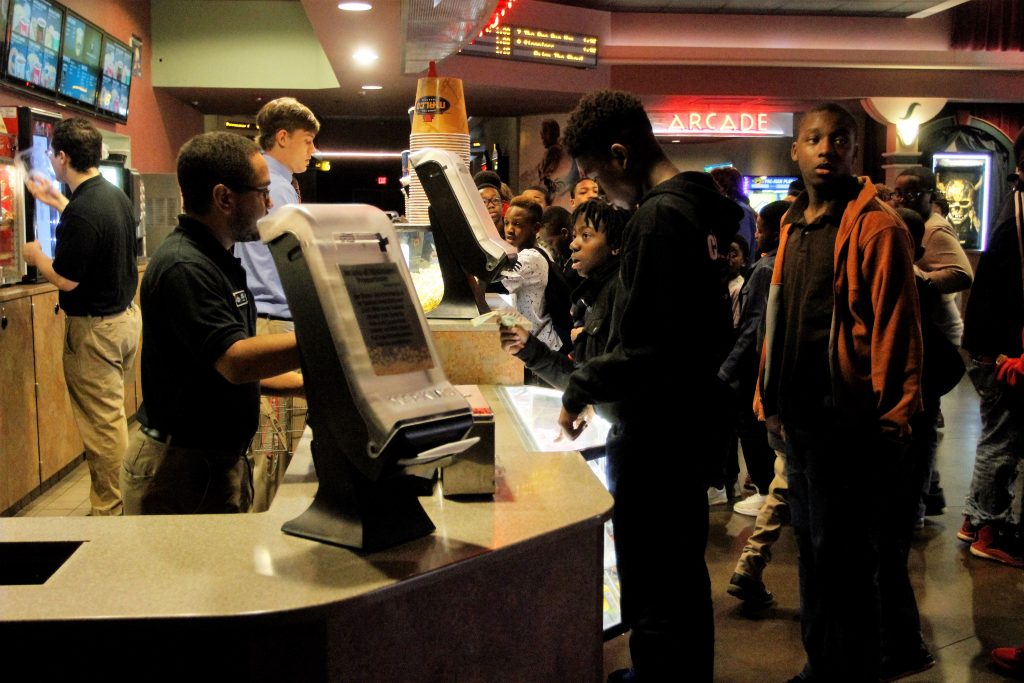
Many of the boys were from at-risk situations. They lived in fatherless homes, attended alternative schools, and rarely experienced the pleasure of visiting a theater. Ninth-grader Damien Collins of Grenada was one of the older boys on the trip. Setting an example, Collins pulled his hood off, took out his ear buds and looked to the younger boys, helping them order their snacks at the counter then make their way to their seats.
Based on true events, Hidden Figures tells the story of how a team of black women provided NASA with the mathematical calculations needed to launch the program’s first, successful space missions. Many scenes were raw with historical accuracy and hard to watch, as when white women at NASA unkindly exiled the black women to “colored” restrooms across campus, or when the white, male project leader shamelessly took credit for work done by the black heroine of the movie. The boys seemed to innately understand that what they were watching demanded reverence and, for a group of raucous males, showed a great deal of respect for the female characters. Spontaneous yet restrained applause erupted when the heroine, played by Taraji Henson, after enduring numerous hardships at the hands of her colleagues, finally voiced her frustrations to the boss, played by Kevin Costner.
Rod Hickman, president of the Pi Sigma Lambda Chapter, was pleased with the boys’ behavior as they left the theater and said that he and his fraternity brothers, as members of first, black, intercollegiate Greek-lettered fraternity, wanted to help make this year’s observances of the Martin Luther King Jr. holiday special. “We want to live by example and be a light for anything missing in our communities and in these boys’ lives,” said Hickman.
Ten-year-old Alvin Benford of Grenada saw the hand of God in the remarkable events portrayed in the movie. “It was a miracle,” said an excited Benford, describing the opening scene in which the women mathematicians start a broken-down car. Jakedrick Exson, 11, had an historical perspective. “This was inspiring,” said Exson. “Black people back then didn’t have the rights we do now.” The women’s courage inspired twelve-year-old Tyler Sally of Grenada. “We don’t have to live behind,” said Sally. “We can follow our dreams and be successful.” Tylon Hubbard, 12, was the most philosophical of the Grenada bunch. “Even in the darkest of times, you can see the light of day,” said Hubbard.
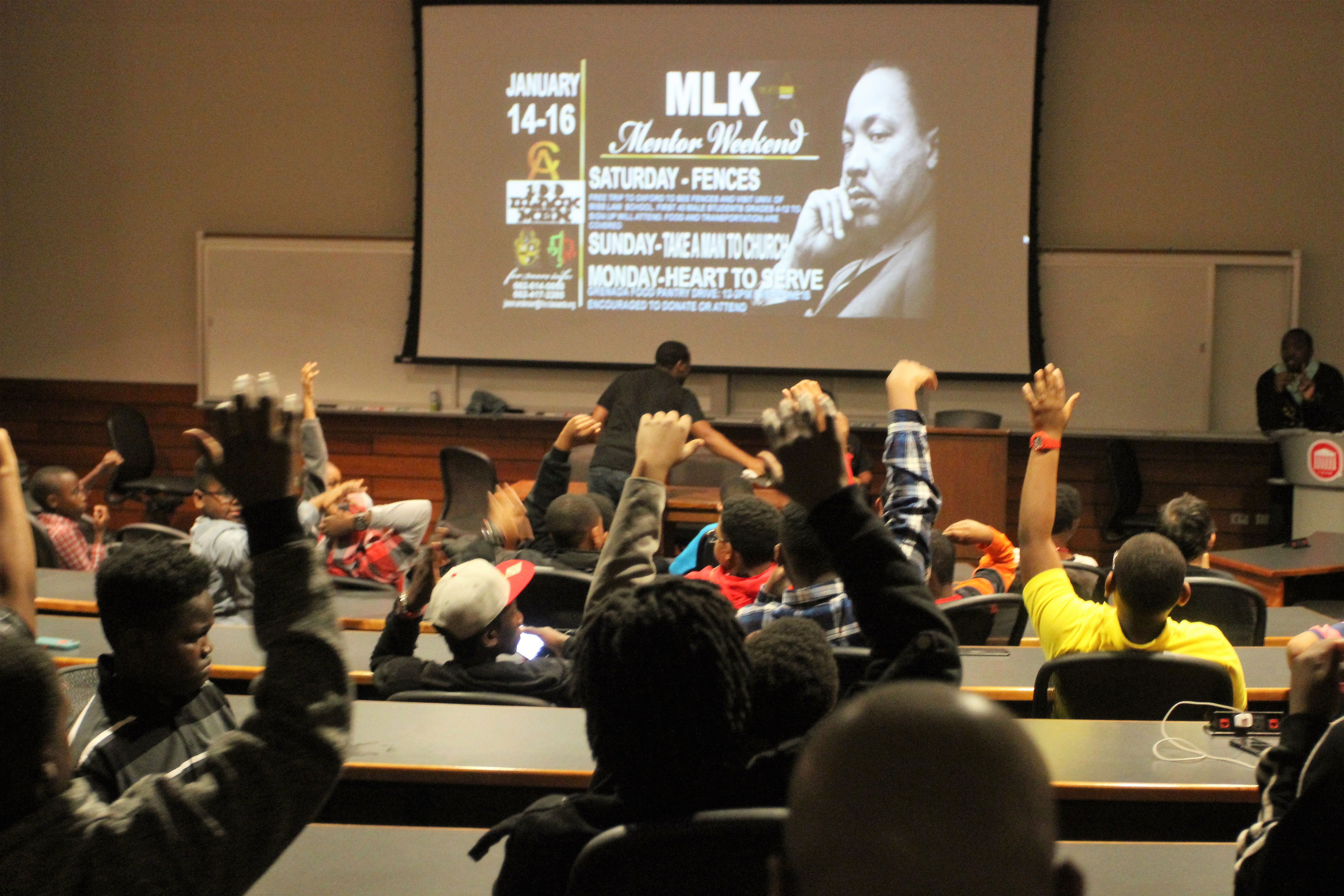
After the movie, the group went to the Robert C. Khayat Law Center for a pizza supper and for presentations on character-building. Alpha Phi Alpha member Jason Anderson, founder of The Class Acts, the nonprofit hosting the day’s events, said that the Martin Luther King holiday provided the perfect occasion for bringing some positive reinforcement into the boys’ lives. “This aligns with two, key pieces from our mission, which are education and empowerment,” said Anderson. “MLK Mentor Weekend is part of a national initiative, organized by the Black Star Project.”
Tim Herrington, a junior at Grenada High School, noted that the movie was especially powerful for black people in Mississippi, which has such a dark history of racial discrimination. “It’s remarkable to see that we, as African-Americans, accomplished so much in the face of such adversity,” said Herrington. “There is no color on your brain. Intelligence and persistence are the keys.” Seventeen-year-old Kameron Mallett of Grenada agreed. “We get what we earn,” said Mallett. “Character determines how people view you. The main character in the movie, she could have given up at any time. We have to have a strong mindset. We live up to the standards we set for ourselves.” Mallett leaned forward in his leather chair and looked down at the floor, with the waning, evening light spilling through the tall windows of the law center. Mallett folded his hands, then raised his eyes. “Never give up on something you believe in,” he said.
